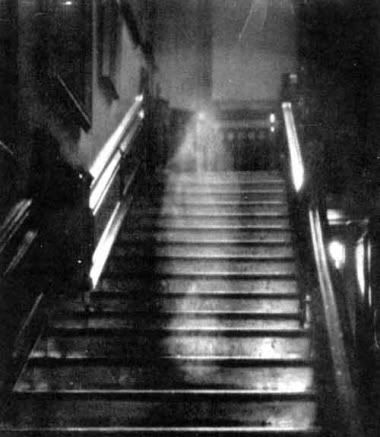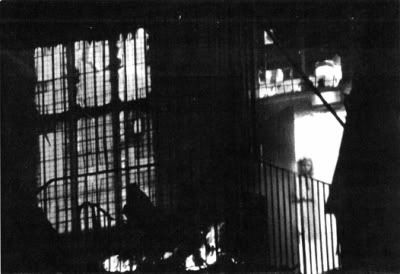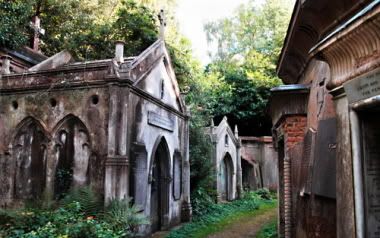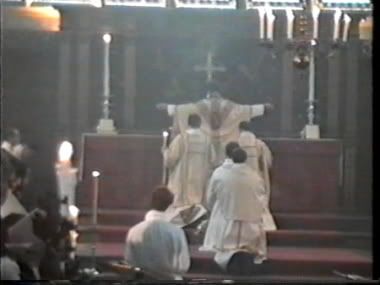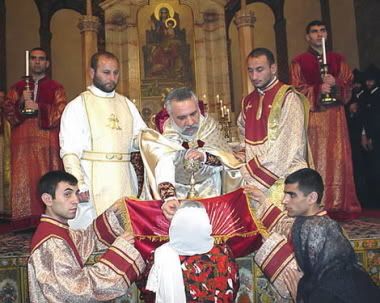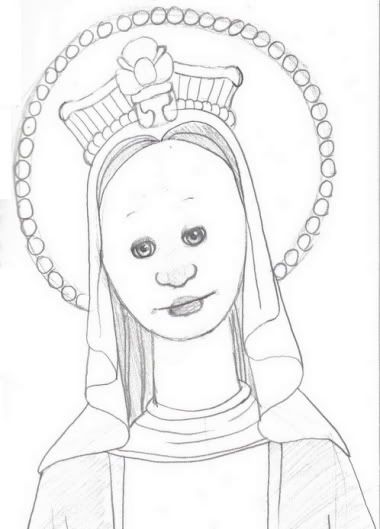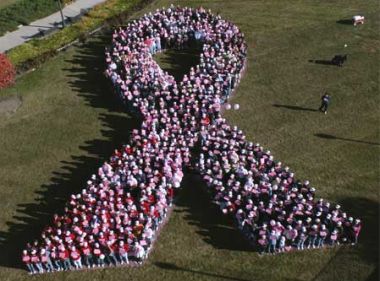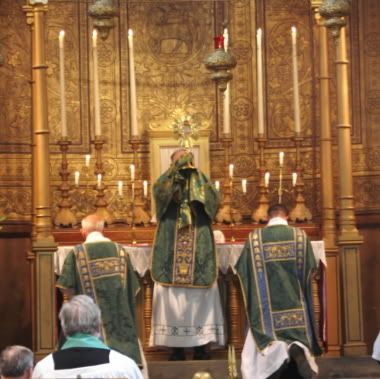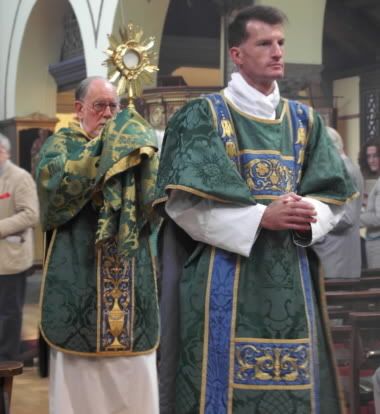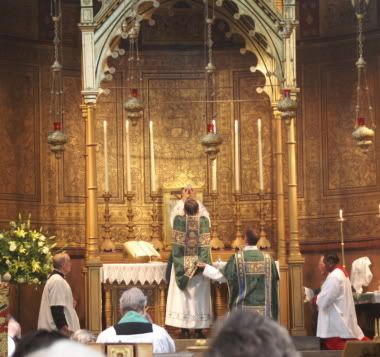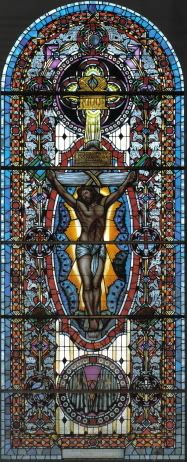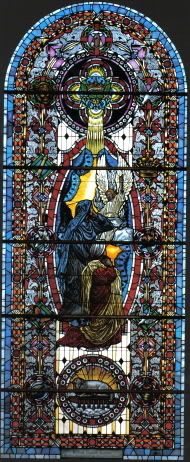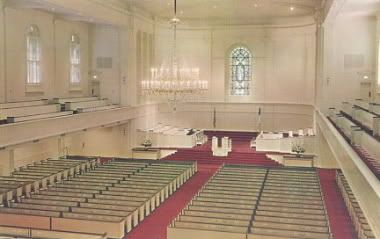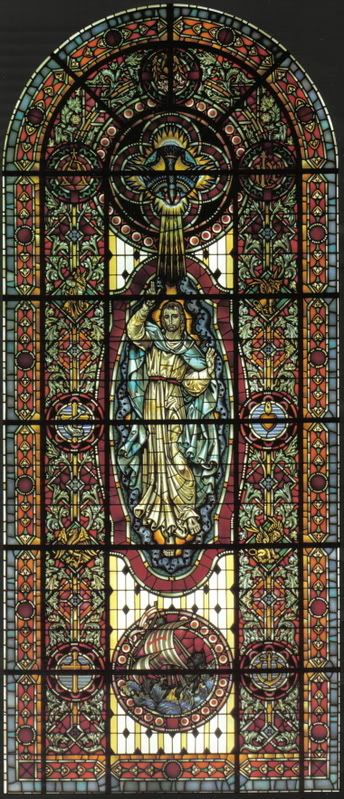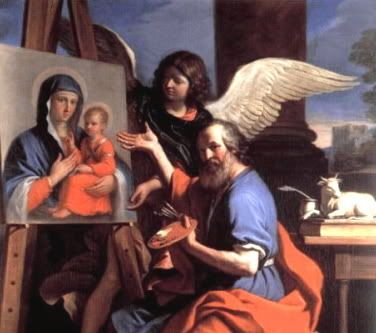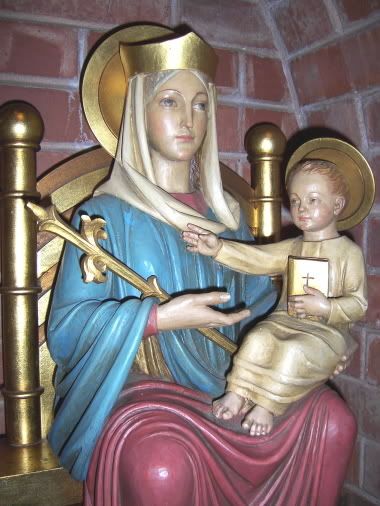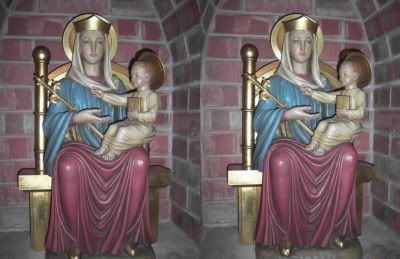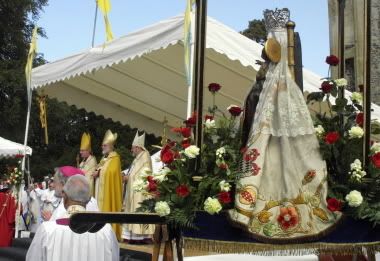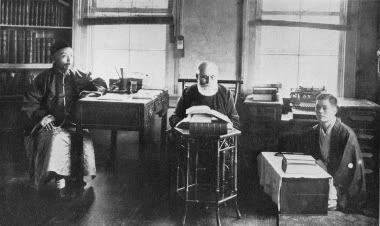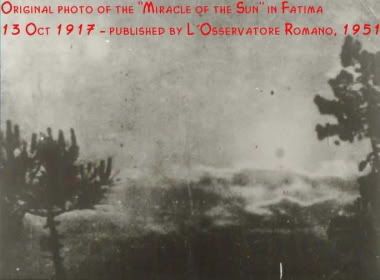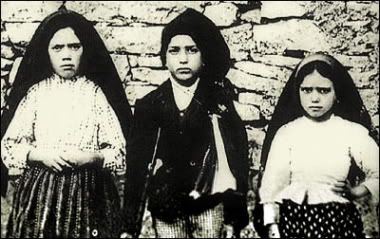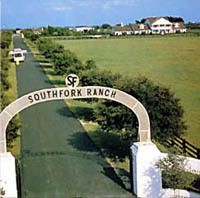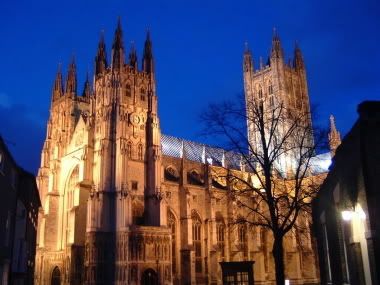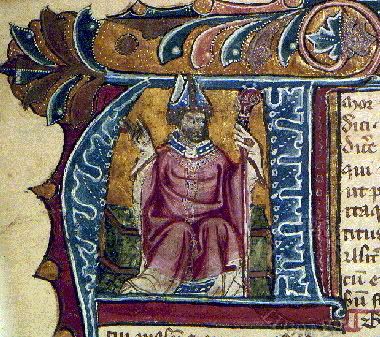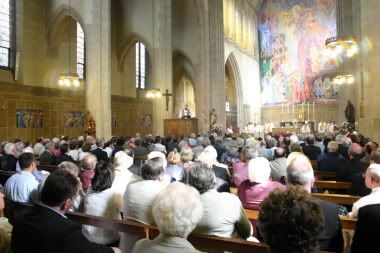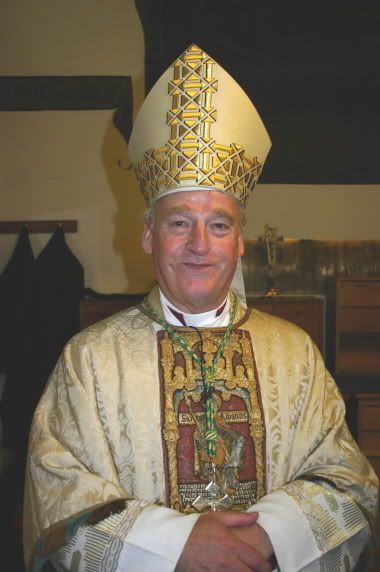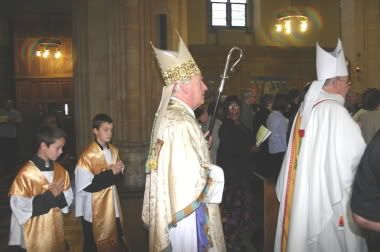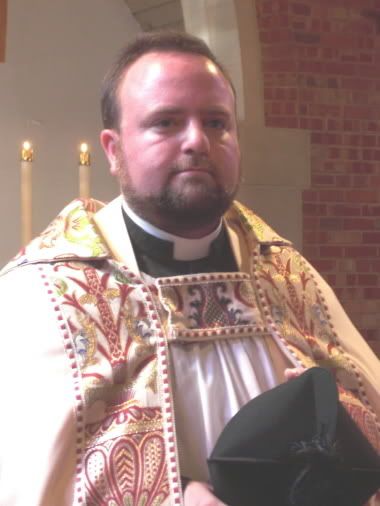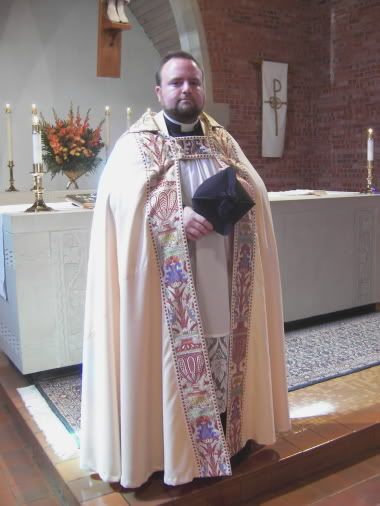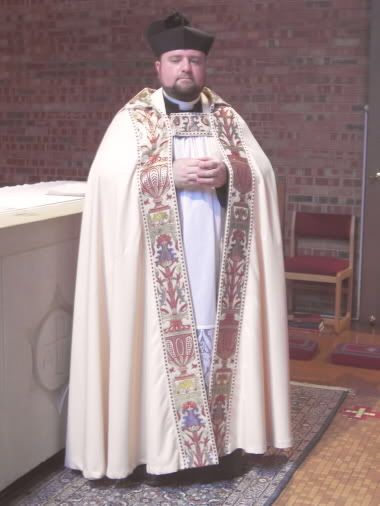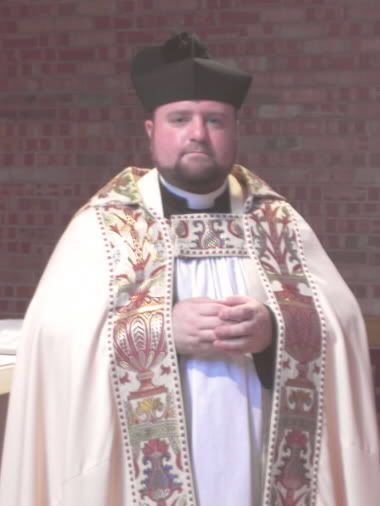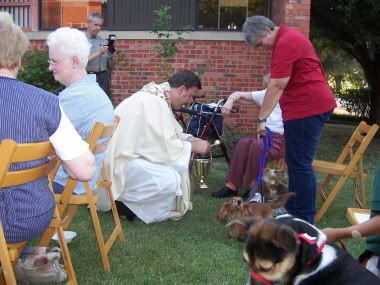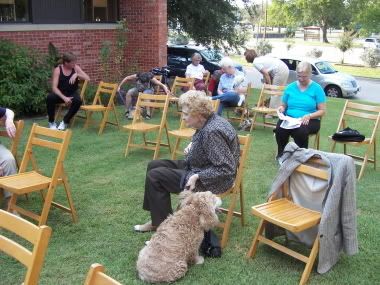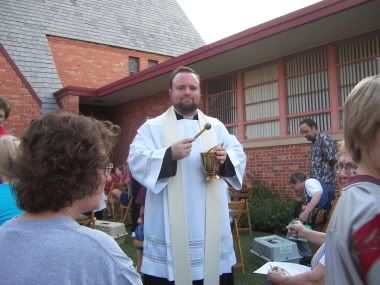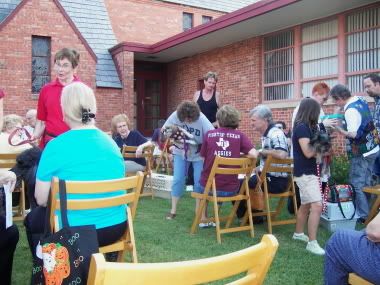This month, we continue our Sermon Series on the theme of
God’s Harvest: giving as we have received. Remember that God plants things in our lives, and he provides in abundance for what he has planted. The harvest is what comes out of that process. And so we are taking a closer look at God’s harvest . . . in our homes, our hearts, our church, and our world.
Fr. Kresowaty talked to us about God’s harvest in our homes, about God's creation of the family and the blessings that come from the home. Fr. Heidt and I gave messages about God’s harvest in our hearts. The human heart is also God’s creation, and God made it to be his dwelling-place. When we truly become vessels of his love, then we are experiencing a godly harvest in our hearts.
Today we take a closer look at God’s harvest in our Church. With all the riches in our scripture readings today, it’s hard to know where to begin. Perhaps the first thing to do to remind ourselves that when we talk about God’s harvest in our Church, we should always remember that
our Church is
his Church.
Like the heart and the home, the Church is God’s creation, and it is a precious gift which is entrusted to us. Remember that after Peter confessed Jesus as Christ and Son of God in Matthew 16, Jesus responded with the charter statement:
“You are Peter, and on this rock I will build my Church, and the gates of hell shall not prevail against it.” Jesus is very clear on this point—“
I will build
my Church.”
“Church” is the Greek word
ecclesia and the Hebrew word
Q’hal, which means a sacred assembly—God’s people gathered together to be his own. Jesus ministry was to gather an assembly of his own to be his own. Jesus entrusted his ministry of teaching, serving, and reconciling to his sacred assembly—so that it would be carried on in the world, exercised through the Church's various orders.
In his first letter to the young Bishop Timothy, St Paul reminds him how God’s people should conduct themselves in this sacred assembly, which he calls,
“the household of God, which is the church of the living God, a pillar and buttress of truth.” (1 Timothy 3:15)
In his farewell words of Maundy Thursday in John’s gospel, Jesus prayed that his Church, to be led by this band of apostles whom he was setting apart, would be transformed and made holy by the truth of God’s Word.
“Sanctify them in the truth;” Jesus prayed,
“your word is truth. As you sent me into the world, so I have sent them into the world. And for their sake I consecrate myself, that they also may be sanctified in truth.” He promised that they would also be given the gift of the Holy Spirit, the Paraclete, the Spirit of truth, to continually guide his Church in truth. Later, the scriptures of the New Testament would be written and collected to be an inspired guide and record of God’s revelation. These scriptures are also God’s gift to us, to give us hope and encouragement, and to teach and convict our hearts.
As we heard in the letter to the Hebrew’s today,
“the word of God is living and active, sharper than any two-edged sword, piercing until it divides of soul from spirit, joints from marrow, discerning the thoughts and intentions of the heart. And before him, no creature is hidden, but all are naked and laid bare to the eyes of him to whom we must render an account. Since then we have a great high priest who has passed through the heavens, Jesus, the Son of God, let us hold fast to our confession.” God shares his revelation; he shares his truth because he wants us to understand, but also because coming into the truth means coming into holiness. We are sanctified in the truth of the Gospel, just as God spoke through Moses to the people of the Old Covenant in Leviticus 19:2, “You shall be holy, for I the LORD your God am holy.”
Jesus’ Church is also a place--a place where the Church gathers to worship the Father in his Name, where we are sanctified in the truth through the Word and the Holy Spirit. We assemble as his Church to discover his will and to seek his face. We gather to make his will our own and to share in his work. But Christ’s gifts to his Church do not stop there.
Certainly the message of the cross (which we are commanded to continually recall in the eucharistic memorial of his death and resurrection) is that God found no provision too great to expend upon the salvation of your individual soul. Through his broken Body and his precious Blood shed on the altar of the cross, Jesus has given us access to the throne of grace, to stand in God’s mercy.
The sacraments are ways that he shares his gifts with us. They are ceremonies that Jesus gave us to be sure that God’s grace is working in our lives behind the scenes. The sacraments of the Gospel (Baptism and Eucharist) unite us to Christ himself. St. Paul tells us that in baptism, we are buried with Christ and raised to new life. And in the Mass, Christ gives us his own life-giving Body and Blood. In John 6, Jesus explains,
“Whoever eats my flesh and drinks my blood has eternal life, and I will raise him up on the last day. For my flesh is true food, and my blood is true drink. Whoever feeds on my flesh and drinks my blood abides in me, and I in him.”Jesus has ransomed us from the world to be his sacred assembly, his own Church. St. Paul wrote to the Church in Galatia,
“Grace to you and peace from God our Father and the Lord Jesus Christ, who gave himself for our sins to deliver us from the present evil age, according to the will of our God and Father, to whom be the glory forever and ever.”Being ransomed from the world means we are different (his Church), we are to be joined to him as the head of the Church, to be like him in every way. Notice Jesus’ words in today’s gospel,
The world may do things one way,
“but it shall not be so among you.” We are not supposed to be like everyone else in the world; we are called out from the world to be his assembled people. As St Peter observed, Jesus gave us an example, to follow his steps.
God has given so much to his Church—truth, blessings, ministries, resources, even himself.
A godly harvest in our Church is to put these to use, to carry out his mission. And what exaclty is this mission he has given us? When we turn to the catechism of the Prayer Book, we see the church’s mission summarized this way (p 855),
“The mission of the Church is to restore all people to unity to God and each other in Christ.”That would be so simple to accomplish if it were not for sin. Sin is the problem of today’s world, as it has been from the time of our first parents. Sin separates us from God, because sin is essentially a rejection of God. Sin not only destroys our relationship to God, it also sows pain and destruction in the human family—leaving a wake of confusion, sadness, and devastation and in its path.
Yet sin has been overcome by Jesus Christ. He has taken upon himself the destructiveness of sin. Isaiah puts it so well in today’s description of God’s suffering servant.
“He was wounded for our transgressions; he was crushed for our iniquities; upon him was the chastisement that brought us peace, and with his wounds we are healed. All we like sheep have gone astray; we have turned every one to his own way; and the LORD has laid on him the iniquity of us all. . . . Yet it was the will of the LORD to crush him with pain; When you make his life an offering for sin, he shall see his offspring (that's us)
; he shall prolong his days; the will of the LORD shall prosper in his hand.”This parish is an outpost of his Church, which we have put under the patronage of blessed Alban, a converted Roman soldier, the first martyr in Britain. Our parish is so blessed—with all the things Christ has given to his Church as a whole, and with so many blessings unique to us.
We are blessed with a godly bishop and dedicated priests of our parish who will administer the sacraments and teach the faith as they have received it (not as they or anyone else have reinvented it). We have a place where we are free to worship God, and are able to offer several Mass times on Sunday and Masses during the week.
We are blessed with facilities for worship and fellowship here at St. Alban’s—a Parish Hall and kitchen, meeting rooms and classrooms, a playground, several rooms just for our youth, a library, and Canterbury House for college students. We have dedicated people who volunteer their time and talent as Sunday School teachers and workers. We have a Christian Education coordinator and a Youth director and many volunteers. Thus, we are able to offer Christian education for all ages here at St. Alban's, with several options for adults to choose from.
We have multiple choirs with talented people so that we can not only have music in our worship, but can also offer God the very best in music. We have an organist, several choir directors, and a music director who teaches music at the university level.
We have many devoted and talented people in our parish: people who come to worship week after week, who pray every day; people who love the Lord, and share that with others; people who proclaim the Gospel by word and by dead; people who are penitent and make their confession and who intercede in healing prayer for the needs of others.
We are blessed with growing attendance and participation. There are about 30 more people in church each Sunday than last year. Our young people got a taste of the possibilities that are open to them when 36 of our teenagers gathered together last Sunday. When they all start coming, we’ll have the largest youth group in the diocese. And when all of us come to Mass on Sunday, we’ll have the largest Sunday attendance.
I hope that you can see God’s blessings in this place and know them to be true. So often, many of us can’t see them. Sometimes because we don't notice things that are in front of our eyes all the time. Sometime because of a spirit of criticism or of cynicism. So often, we exchange our hand-shaking for hand-wringing. So often, we would prefer to shoot ourselves in the foot than to wash one another’s feet.
As his Church, we need to rebuke that worldy critical spirit within ourselves. It is alien to the Holy Spirit, the Comforter, the Spirit of Truth. That doesn’t mean we should compromise our beliefs and values or that we should sacrifice our capacity for critical thinking. It means that we should not let the voice of the accuser have the ear of our Church and of our hearts. As Jesus put it in today’s gospel, “Let it not be so among you.”
Some of you have already returned pledge cards. Some of you will bring yours forward today as you come to receive Holy Communion. Some of you will want to look over your family budgets again first, talk about it with your spouse, pray about the matter together.
In each case, please remember that you are his Church, his gathered people. Remember that God’s harvest in our Church is found within you. And remember that the most important thing about your pledge is not your money—it is yourself. We pledge
ourselves to God as his Church in thanksgiving for his many blessings, praying that we may give as we have received.
Let us pray.Almighty and everliving God, ruler of all things in heaven and earth, hear our prayers for this parish family. Strengthen the faithful, arouse the careless, and restore the penitent. Grant us all things necessary for our common life, and bring us all to be of one heart and mind within your holy Church; through Jesus Christ our Lord. Amen.
